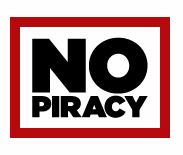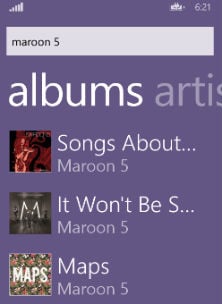TorrentFreak Email Update |
- Minister: Sue Mums, Dads, Students To Send Anti-Piracy Message
- Punish Music Pirates With Finger Amputations, Artist Says
- Microsoft Gets GitHub to Remove “Infringing” Xbox Music App
| Minister: Sue Mums, Dads, Students To Send Anti-Piracy Message Posted: 01 Aug 2014 01:35 AM PDT
Instead of pure head-on attacks against websites, their finances are being undermined through deals with advertisers and their sites blocked online. Rather than attempting to batter ISPs into submission through the courts, partnerships are sought instead. And when it comes to the end user, it’s largely education and more education. In Australia the debate is familiar. On top of a legal framework to have websites blocked at network level, rightsholders are now seeking friendly cooperation from ISPs in order to deliver a message to subscribers that content should be purchased, not pirated. The debate is well underway with the government seeking input from interested parties. Communications Minister Malcolm Turnbull has been putting pressure on rightsholders to ramp up their game in respect of pricing and availability too, which is definitely a step in the right direction. But yesterday, during a televised interview with Rupert Murdoch’s Sky News, Turnbull made comments that transport the debate back many years, raising the specter of tough punitive action to send an anti-piracy message. At first things started as expected, with the Minister telling Sky that people need to be educated. He raised the usual shoplifting and stealing analogies, noting that taking content from supermarkets is no different from downloading content online. Then, after outlining New Zealand’s “three strikes” system, he noted that if content owners are suffering losses, then it should be them who foot the bill for any introduced anti-piracy measures. Content owners aside, few would disagree there. Turnbull also noted that disconnections for persistently pirating Internet users would be met with a lot of resistance so were probably off the table, but then the bombshell. “Rightsholders are not keen on taking people to court, because it doesn’t look good, because it’s bad publicity. What happens if the person you sue is a single mother, what happens if it’s a teenager, what happens if it’s a retiree on a low income?” Turnbull said. “The bottom line is though, rightsholders are going to have to be tactical about who they take to court, who they want to sue.” Education, it seems, only goes so far in Turnbull’s eyes. In addition there will need to be punishments for those who don’t get the message and that in turn will help to solve the problem. “What you do is that when you raise awareness of this, and as people recognize that there is a risk that they will be sued, and have to pay for what they have stolen, then the level of infringement and theft will decline,” the Minister said. So who should the rightsholders “strategically” target? “It is absolutely critical that rightsholders…are prepared to actually roll their sleeves up and take on individuals. They have got to be prepared to sue people. Sue moms and dads and students who are stealing their content. They can’t expect everybody else to do that for them,” Turnbull said. This kind of aggression from a key Minister in this debate is bound to raise alarm bells. As rightholders head down the cooperation and education route, here is a clear sign that the government thinks that yet more legal action against the public will solve the problem. It won’t, and ISPs such as iiNet almost certainly won’t like the sound of this either. Whether this will hurt cooperation moving forward remains to be seen, but it’s likely to paint a picture of a government and an industry holding up new carrots, but keeping the same old tired stick in reserve, just in case. The whole interview can be seen here. Source: TorrentFreak, for the latest info on copyright, file-sharing and anonymous VPN services. |
| Punish Music Pirates With Finger Amputations, Artist Says Posted: 31 Jul 2014 12:50 PM PDT
Ordering ISPs to block ‘pirate’ sites is one approach, but at least in the first instance the process is both expensive and drawn out, often taking a number of years to come to fruition. Another method is to hit Internet users who dare to download and share copyrighted material. Some frameworks, such as those in the United States and United Kingdom, envision a situation where people can be persuaded to do the right thing after receiving warning letters. More aggressive schemes, such as those in South Korea and New Zealand, foresee potential disconnections for persistent pirates. But one musician in Nigeria believes she has a quick and easy solution to stop people illegally pirating her work. Her version of the so-called “graduated response” is controversial, but might just work. “Cutting their fingers off will stop them, by the time you cut off two people’s fingers others will stop,” popular singer Stella Monye told the News agency of Nigeria. Amputations, the singer says, are doubly effective. Not only do they act as a deterrent, but already-punished pirates will not be able to re-offend either. “If their fingers are cut, they won’t [be able to use the hands] in pirating the works,” Monye said. “They will learn and it will be faster in stopping them; without a drastic measure they won’t stop.” Web blockades have been previously described as a potential abuse of human rights, but Monye’s anti-piracy solution pushes new boundaries. Source: TorrentFreak, for the latest info on copyright, file-sharing and anonymous VPN services. |
| Microsoft Gets GitHub to Remove “Infringing” Xbox Music App Posted: 31 Jul 2014 07:11 AM PDT
This resulted in a range of new apps that provide access to Xbox Music tracks, but Microsoft is not happy with all of them. Earlier this week the company contacted developer platform GitHub, asking the company to remove all code related to the Audiotica download tool, which they did. In its takedown notice Microsoft explains that the app in question provides users with DRM-free music, something it is not allowed to do. Specifically, the app is said to violate the circumvention clause of the DMCA. “This code violates [...] the DMCA in that it allows users to circumvent a technological measure that effectively controls access to copyrighted works by facilitating the unauthorized conversion of songs streamed via Xbox Music into DRM-free MP3s that can be easily shared online,” Microsoft writes. Microsoft explains that the application puts its licensing agreements with the major music labels in jeopardy. Under these agreements the company has to protect music tracks from being shared online without restrictions. “As part of Microsoft's agreements with the copyright owners of the songs included in the service, Microsoft has both authorization from and an obligation to those copyright owners to control access to their works by employing an effective DRM system,” Microsoft notes. An interesting argument, since the tracks provided by Xbox’s Music service appear to be free of DRM.  TorrentFreak contacted Audiotica developer Harry who was unpleasantly surprised by Microsoft’s takedown notice. He notes that Microsoft itself is the one making it easy to access DRM-free music through the Xbox Music API. “Audiotica is programmed so users with an Xbox Subscription can download directly from Xbox Music. This is what surprised me about the takedown. Microsoft claims we can’t allow users to obtain DRM free music from their service, while they’re the one providing it,” Harry says. Microsoft most likely took offense to the fact that the application allowed users to download and store tracks. Although this might not technically be a form of “circumvention,” it does violate the API’s terms of service. The Audiotica developer says he will ask GitHub to reinstate his project, without the Xbox Music feature. The application will still be able to access music from other sources including YouTube, VK and Soundcloud. “Right now I will be filling a counter notice to bring it back. To avoid further problems with Microsoft I will be removing Xbox Music from the MP3 crawler engine and the downloader.” Microsoft’s takedown request follows a new trend in which copyright holders are targeting GitHub projects. Previously the MPAA successfully requested the takedown of two popular Popcorn Time forks. While both the MPAA and Microsoft don’t own any of the code, the alleged indirect infringements were sufficient to take the code down. Source: TorrentFreak, for the latest info on copyright, file-sharing and anonymous VPN services. |
| You are subscribed to email updates from TorrentFreak To stop receiving these emails, you may unsubscribe now. | Email delivery powered by Google |
| Google Inc., 20 West Kinzie, Chicago IL USA 60610 | |


